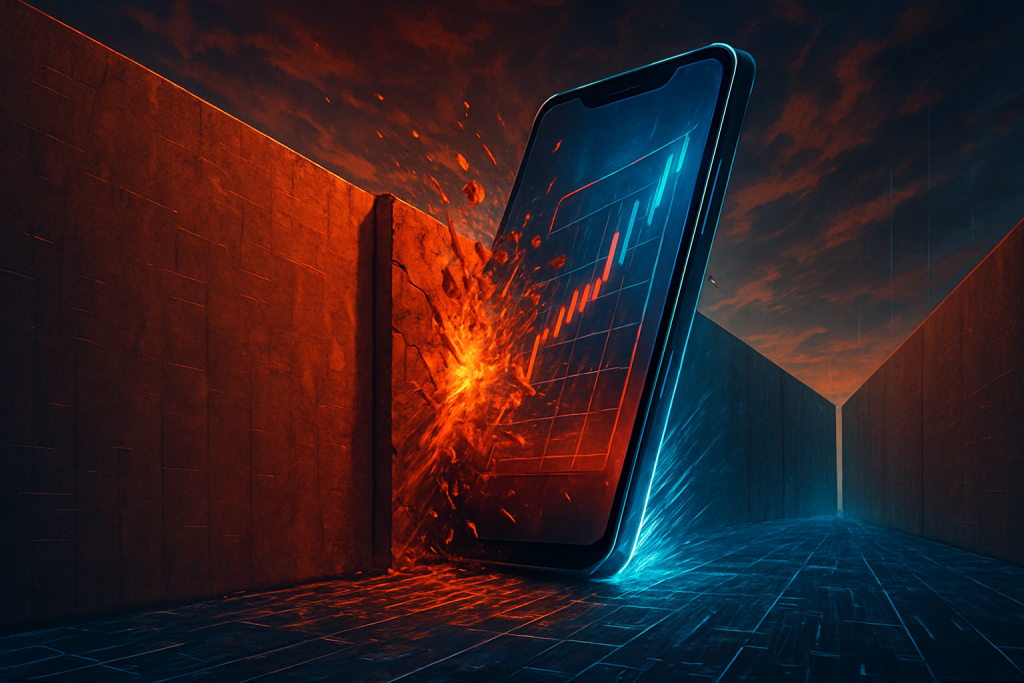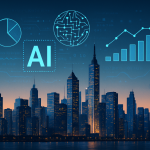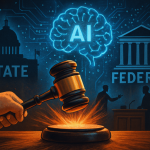Remember that scene in *The Matrix* where Neo dodges bullets? That’s kind of how Apple and Alibaba must feel right now, only instead of bullets, it’s trade tariffs and regulatory roadblocks coming at them from all sides. According to a recent report in the Financial Times, their highly anticipated AI rollout in China has hit a snag, courtesy of the Cyberspace Administration of China (CAC). And guess who’s playing the role of Agent Smith in this scenario? You guessed it: ongoing trade tensions between the U.S. and China, exacerbated by President Trump’s policies. It’s a tech tango gone wrong, and the music has stopped, at least for now.
Let’s rewind a bit. Back in February 2025, there was palpable excitement in the air. Apple, facing some headwinds in the crucial Chinese market, announced a partnership with Alibaba. The plan? To inject some serious AI muscle into iPhones specifically for the Chinese consumer. Think Siri on steroids, capable of understanding the nuances of Mandarin, predicting your needs before you even voice them, and generally making life in the Middle Kingdom a whole lot easier. This wasn’t just a feature upgrade; it was a strategic play to reignite Apple’s growth in a region where local competitors are breathing down its neck. But the CAC, the gatekeepers of the digital realm in China, seem to have slammed the door shut, at least temporarily, citing the aforementioned geopolitical uncertainties. It’s like trying to launch a rocket while someone keeps hitting the abort button.
The implications for Apple are, well, significant. China is a massive market, and smartphone sales there are a crucial barometer of the company’s global health. While Tim Cook has always been a master diplomat, navigating the complexities of international business with a grace that would make Machiavelli jealous, even he seems to be facing an uphill battle here. The delay allows domestic rivals like Huawei to further entrench themselves. Huawei, never one to shy away from a technological arms race, has already been integrating AI models from companies like DeepSeek into their devices. This gives them a tangible edge, offering consumers advanced features that Apple can’t currently match in the Chinese market. Think of it as Huawei showing up to the AI party with a cutting-edge neural network, while Apple is still waiting for its invitation to arrive.
And it’s not just Huawei. The wider Android ecosystem has been quicker to embrace AI. Apple’s own “Apple Intelligence” suite, which includes integration with ChatGPT, has been rolling out slower than many expected. This means Android devices are already offering similar, if not superior, AI capabilities to Chinese consumers. Apple’s once-unquestioned aura of innovation is starting to fade, at least in the eyes of some. They’re in danger of becoming the Blackberry of the AI era: a once-dominant player struggling to adapt to a rapidly changing landscape. The stakes are high, and the pressure is on.
Adding fuel to the fire is the trade war raging between the U.S. and China. In late May, President Trump, never one to mince words (or tariffs), slapped a hefty 25% tariff on iPhones sold in the United States that aren’t manufactured domestically. Ouch. That’s a direct hit to Apple’s bottom line. Apple relies heavily on its Chinese manufacturing base, and this tariff adds significant financial pressure. It’s like being caught in a vise, squeezed between regulatory hurdles in China and economic pressures from the U.S.
The financial impact is already being felt. Apple’s stock price has been volatile in recent weeks, reflecting investor uncertainty about the company’s prospects in China. Analysts are scrambling to reassess their forecasts, and the whispers of “peak Apple” are growing louder. It’s a far cry from the glory days when Apple could seemingly do no wrong, when every product launch was greeted with breathless anticipation and record-breaking sales. Now, they’re fighting to maintain their position in a market that’s becoming increasingly hostile.
But, as Obi-Wan Kenobi famously said, “Hope is not lost.” Apple’s Worldwide Developers Conference (WWDC), scheduled for June 9 to 13, offers a glimmer of hope. The company is expected to unveil a slew of software updates, and there’s a chance they might address some of these strategic challenges head-on. Perhaps they’ll announce a new AI initiative that circumvents the regulatory hurdles, or maybe they’ll unveil a partnership with a different Chinese company. Whatever they do, they need to come up with a game-changing move, something that reminds the world why Apple is still a force to be reckoned with.
The Apple-Alibaba AI delay is more than just a business setback; it’s a microcosm of the larger geopolitical tensions that are shaping the future of technology. It raises profound questions about the role of government in regulating AI, the balance between innovation and national security, and the future of globalization. Is this a sign of things to come, a world where technological progress is increasingly constrained by political considerations? Or can companies like Apple and Alibaba find a way to navigate these treacherous waters and bring the benefits of AI to consumers around the globe? Only time will tell. But one thing is certain: the stakes are incredibly high, and the future of technology hangs in the balance.
Discover more from Just Buzz
Subscribe to get the latest posts sent to your email.


